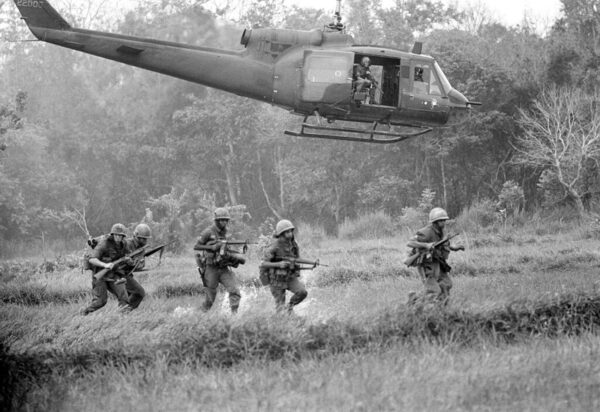
Thuong Lang, Vietnam, June 24, 1965. (AP Photo/Horst Faas)
Good morning, Christian
I am a member of Post 0291 Newport. I want to ask you a question on the criteria of a Purple Heart. Today if a Soldier gets hurt by an IED he is awarded a Purple Heart; yet I was blown out of my truck in Vietnam after hitting a land mine and was turned down. I would hope that the VA is trying to correct this issue as we served just as patriotically as our brave comrades that fought in the most recent wars. Thank you.
Best Regards,
– Michael Keane
[In response to our asking Mr. Keane’s permission to post his inquiry as an article:]
Christian,
I have no issue as long as it furthers the conversation as to why Vietnam Veterans are not in the same conversation as today’s Vets. And why the cut off limit? We suffered from injuries just the same as today’s Vets, yet you see everyday that Veterans are [receiving awards] for actions that happened before the Vietnam War.
I have nothing but the most respect for all these Veterans. I would like to have the Vietnam Veteran get the same respect as our fellow Veterans from the people that are making the decisions and rules.
Best Regards,
Hi Michael,
The unfortunate reality is that, broadly, the America of the early 2000s and today has more appreciation for Veterans than the America of the late 1960s and 1970s — an error that took decades to rectify, yet still needs work.
Many Vietnam Veterans still feel as you do: that their service and sacrifices have not been properly recognized in the same way that Veterans of contemporary conflicts have been recognized, even as many historians, politicians, and ordinary people draw parallels between the Vietnam War and the wars in Iraq and Afghanistan.
To your point, there is growing consensus among historians that eligibility for the Purple Heart was indeed more restrictive than it has been over the past three decades. By many metrics, the Vietnam War was the United States’ first major foray into asymmetrical warfare. Determining whether a wound was caused by direct enemy action was not always as straightforward as it had been during World War II and the Korean War. Moreover, wounds that would qualify contemporary Service Members for a Purple Heart — particularly traumatic brain injuries — did not qualify Service Members who were wounded or killed while serving in the Vietnam War. And while not as glamorous an answer, documentation and record keeping in the contemporary era is magnitudes better than it was during the Vietnam War.
All that to say: if the VA is not trying to correct this issue, it should be. Veterans, regardless of the conflicts in which they served, deserve the recognition they earned.
Warm regards,
-Christian Southards
Associate Editor, The California Legionnaire












